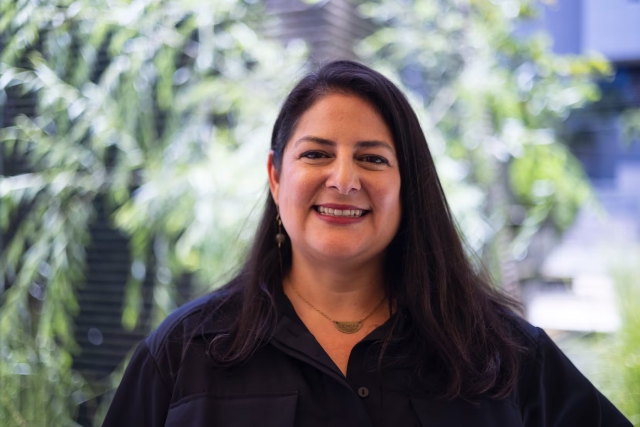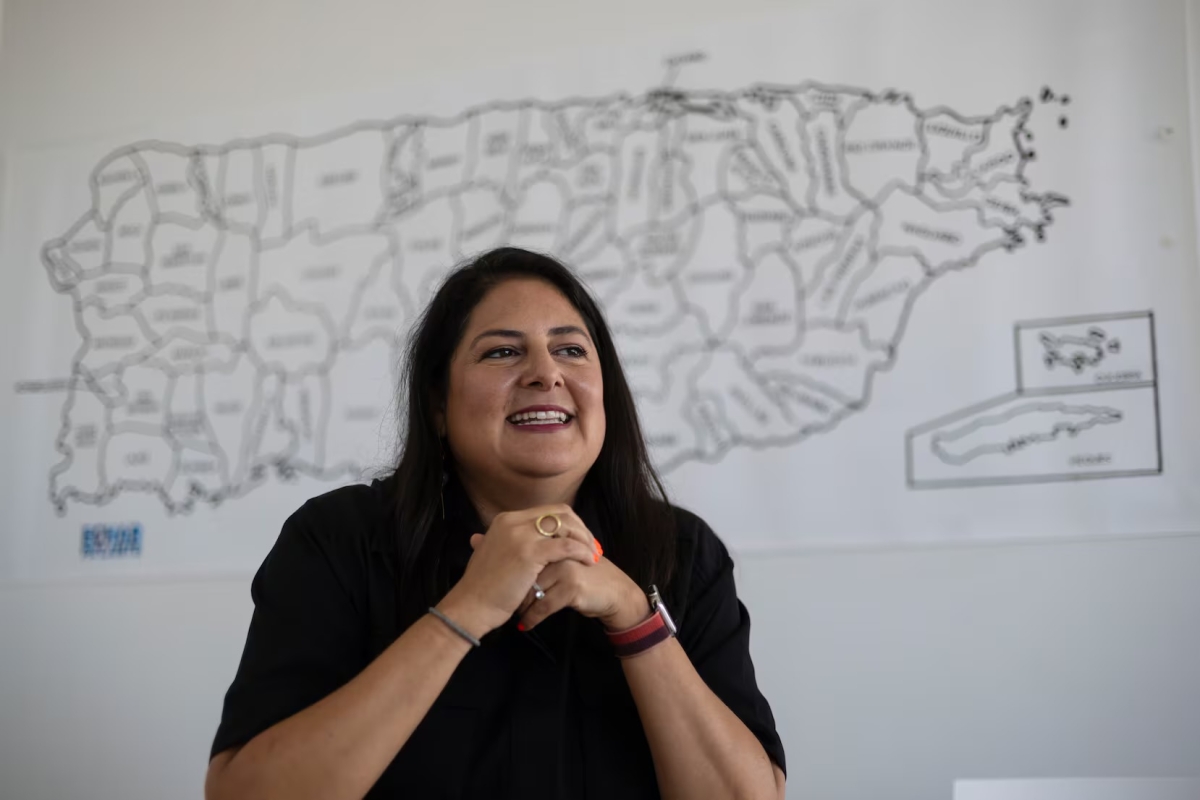Science Protagonists: Puerto Rican Giovanna Guerrero and her work in favor of diversity and inclusion in science
Submitted on 26 August 2024 - 1:40pm
This article is reproduced by CienciaPR with permission from the original source.
CienciaPR Contribution:
Original Source:
By:

The executive director of Ciencia Puerto Rico will leave her post in September after more than a decade at the helm of the organization, which brings together thousands of Puerto Rican scientists on all continents.
“Guerrera,” was engraved on a necklace hanging around the neck of Puerto Rican neuroscientist Dr. Giovanna Guerrero Medina, executive director of Ciencia Puerto Rico (CienciaPR), who will soon be leaving her post--after 12 years at the helm of the organization--to devote herself fully to a new project that seeks to improve university systems so that they are more diverse and inclusive.
“My last name is Guerrero, but it is also a reminder that I have the ability, that I have the ability to fight for what I care about, that I have the scars to prove it, and also that it is a responsibility for me,” shared the also director of Diversity, Equity and Inclusivity at the newly formed Wu Tsai Institute at Yale University in New Haven, Connecticut.
Dr. Guerrero Medina believes that the scientific field is still a very homogeneous one. “I would like to make sure that people see that there are paths in science, and understand that they have an opportunity to participate as well. In my next phase, I want to focus on tackling those systemic problems that science has with diversity and inclusion,” she said.
Since she was a child, she has often walked the halls of university campuses, since her father, of Ecuadorian origin, was a professor of Pharmacy at the Medical Sciences Campus of the University of Puerto Rico (UPR) and her mother, a native of Argentina, was an English professor at the Interamerican University of Puerto Rico.
“I was fascinated by the thousands of things that have to happen for a human being to be born, to be able to think, to act... That is what helped me decide that I didn't want to do medicine, but to investigate how beings are created, how life and the brain are created,” shared the graduate of the UPR in Rio Piedras.
While pursuing his doctoral studies at the University of California, Berkeley (UC Berkeley), other interests began to emerge in social issues and how to advocate for a scientific perspective in public policy to make evidence-based decisions.
“At the time, there was a lot of talk about stem cells, and the government wanted to regulate and prevent work with stem cells. That seemed unheard of to me, to limit science and technology because of erroneous beliefs about what was ethical and what was not,” said Guerrero Medina.
After completing her PhD in Molecular Biology in 2004, she began working at the National Academy of Sciences in Washington, D.C., and later at the National Institutes of Health (NIH), where she excelled in addressing issues to connect science with communities.
“I am a scientist by training, but I work on designing systems for science that are healthy, sustainable, diverse and inclusive,” she noted.
A network of connections
Her arrival at Ciencia Puerto Rico, an organization founded, in 2006, by fellow neuroscientist Daniel Colón Ramos, was just a year after its creation, when she stumbled upon the entity's website.
“One of the first initiatives was to connect with El Nuevo Día and use that incipient network of scientists to help connect the Puerto Rican public with what was happening in the sciences, to contextualize it, give it relevance and make the public feel that the sciences are part of their heritage, their culture, their daily lives,” she emphasized.
In 2012, Guerrero Medina officially became the executive director of Ciencia PR, which she considers to have been her “greatest responsibility”.
The neuroscientist emphasized that Ciencia PR is an electronic database, which contains the profiles of more than 17,000 scientists, educators, STEAM (science, technology, engineering, arts and mathematics) professionals and students interested in these careers. “It's a network of connections,” she said.
“We have always been driven by the value of putting the sciences at the service of Puerto Rico. There are many ways we could give back to the country all that we had learned,” said the leader of the organization, which today has a staff of 18 people and manages an annual operating budget of $1 million.

She considers that one of the entity's greatest achievements is the training of young scientists; among them, she mentioned Fabiola Cruz, Luz Cumba García, Kevin Alicea, Luis Alexis Rodríguez, and Marcos Ramos. “That is the most important legacy that, I believe, I am leaving, which is that generation that will continue to fight for Puerto Rico,” she said.
In the midst of the COVID-19 pandemic, starting in 2020, Ciencia PR convened and organized the scientific community to increase diagnostic testing (PCR) in the archipelago and collect data to counter misinformation.
Since 2014, Guerrero Medina founded and leads Yale Ciencia Initiative, an educational collaboration between Ciencia PR and Yale University, where she has mentored more than 300 undergraduate and graduate students from minority backgrounds.
“I would say 60% to 70% are Puerto Rican, and many of them are interested in having a social impact on the island,” she said.
“One of the problems we have in science is that we are still a homogeneous workforce, and that has repercussions with innovations, with the ability to research certain conditions or topics, and with training, because if you don't see people who look like you, you're not going to aspire to those positions,” she explained.
“I am a scientist by training, but I work on designing systems for science that are healthy, sustainable, diverse and inclusive ”
Dr. Giovanna Guerrero-Medina
At the Wu Tsai Institute, Guerrero Medina is in charge of promoting diversity and inclusion initiatives in the field, “because most computational sciences are superhomogenous, so there is not much diversity in terms of gender, racial, ethnic and social background.”
Sowing an equitable future
She highlighted, meanwhile, the development of Semillas de Triunfo, an academic-year Ciencia Puerto Rico educational program that promotes girls and young women - from middle and high schools, public, private and homeschooled - to learn more about STEM careers and see themselves represented.
“We have hundreds of women working in science and technology who each year say present and work with a girl to talk to her about their careers and help them,” she highlighted.
The program has impacted more than 600 girls and about 100,000 people, since 2015, according to data from the organization.
Six cohorts have already taken place and the seventh starts in September. In addition, next year they will have a cohort in New Haven, where they will impact students, who are mostly Latinas and African Americans.
“We empower them to be the agents of change in their communities,”.








